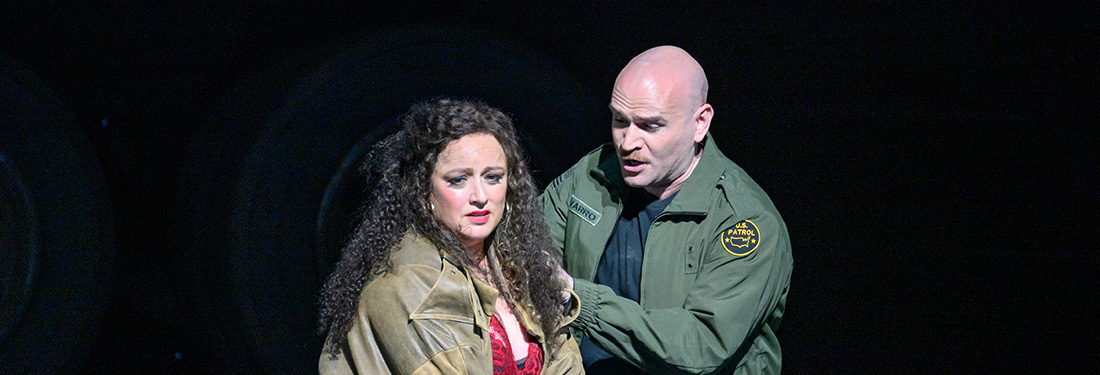
As soon as I learned that my sister and brother-in-law would be spending the academic year in Hamburg (a city I’d never visited), I raced to the websites of the Elbphilharmonic and Staatsoper. I discovered that between the Tage Alter Musik in Herne and the Barocktage at Berlin’s Staatsoper unter den Linden I could catch a revival of Peter Konwitschny’s rightly legendary Don Carlos and Dmitri Tcherniakov’s confounding new Salome with Weltstar Asmik Grigorian: both turned out to be unforgettable!
Don Carlo(s) has long been by far my favorite Verdi opera, and I’ve always thought that more is better, so I was thrilled to get the extraordinarily full French version used in Hamburg. Never before had I heard in person the cloak-exchanging scene between Elisabeth and Eboli nor their duet before “O don fatal.” The first scene between Carlos and Rodrigue was almost entirely different from the one we usually hear and I continue to find the hushed conclusion to the opera extremely effective especially as it dissuades the soprano from holding her final high note until the curtain comes down!
And then there’s that ballet: despite loving Balanchine my irregular New York City Ballet attendance has never afforded me the chance to see Ballo della Regina. As the Konwitschny production which originated in Hamburg twenty-two years ago has also been seen in Barcelona and Vienna (and videos exist from both houses), many will know that the ballet becomes “Eboli’s Dream” an elaborate comic pantomime in contemporary dress portraying the cozy domestic life of married couple Eboli and Carlos as they host a dinner party with Elisabeth and Philippe. While the sequence was immensely entertaining, like the production’s equally celebrated/notorious Auto-da-fé, it completely takes you out of what remains an unusually engrossing Don Carlos.
Otherwise, Konwitschny sets the opera in a blank white box set by Johannes Leiacker studded with low doorways, so low that anyone in Leiacker’s sumptuous period costumes entering or leaving must stoop: a striking visual reminder that all these very grand royals are imperfect human beings. Despite the production’s age, this revival didn’t feel routine at all—the Personenregie remains detailed and illuminating. The one-on-one confrontations in particular crackled with energy, immeasurably aided by Leo Hussain’s thrilling conducting of the marvelous Philharmonisches Staatsochester Hamburg. His reading had so much propulsive momentum that it scarcely felt like two hours and ten minutes had gone by when we got our first break (after a sizzling garden scene).
One idea of Konwitschny’s that didn’t work at all was Eboli’s presence throughout the entire scene in Philippe’s study. While having the adulterous couple wake up together during the long cello introduction to Philippe’s aria was provocative, having her exit before its climax might have been more effective. Her darting about during the Grand Inquisiteur scene simply distracted from the bass-on-bass engagement, as did her cowering to the side while Elisabeth complained about the theft of her jewel box.
While Eve-Maud Hubeaux exuberantly seized upon all that Konwitschny gave her, her Eboli proved a mixed success. She attacked nearly all of her music full bore though she did manage the coloratura flourishes of the Veil Song better than most. Her French was a delight, but she blasted through the garden scene and “O don fatal” which served up a visceral punch, but one often wanted more light and shade, more nuance.
As I missed her Met Gilda and Fille in the early 2010s, I didn’t know what to expect from Nino Machaidze as Elisabeth, but in the past I mostly remembered lots of glamourous photos and middling reviews. But she has been changing her repertoire and her warmly sung, expressively acted Elisabeth seemed a good step. While the sound isn’t the most beautiful, her soprano powerfully filled out Elisabeth’s soaring lines, and, though they sometimes had to be carefully managed, her pianos floated over Hussain’s vibrant orchestra.
I did catch Alexander Vinogradov at the Met in Lucia di Lammermoor and Luisa Miller a while back and wasn’t impressed. However, his time away must have brought things together for the trim Russian bass. His young and vigorous Philippe may have lacked both the pathos and authority that others have brought, he shaped his music with exceptional care and his mighty duet with Liang Li’s Inquisiteur should have been overwhelming except for the skulking Eboli.
I don’t remember ever seeing the name of Turkish baritone Kartal Karagedik before I sat down to Don Carlos but after his earnest, handsomely sung Rodrigue I will certainly be on the lookout for him and the Schubert lieder CD he is scheduled to record with Helmut Deutsch next year. Karagedik exceled at spinning out Rodrigue’s long lines, and we were especially grateful to hear his suave bel canto rendition of both verses of his plea for Carlos in second act.
Despite having seen many performances of Don Carlo(s), I don’t recall any when the tenor so dominated the opera as Russell Thomas did in Hamburg. It was my third time hearing him in the role (after DC and the Met), and it was by far the most stirringly secure and movingly acted. The French suited him particularly well and having the Fontainebleau act made one better understand Carlos’s painful arc. His strong rapport with both Karagedik and Machaidze was palpable, and the wrenching farewell to the latter has rarely been so streaked with world-weary sadness. Based on this Carlos and reports of his recent Ernani and Alvaro, I can’t think of another tenor today whom I’d rather hear sing Verdi.
When I (and my unwitting sister) wandered into the Staatsoper less than 24 hours later we found the curtain up and a team of handsome footmen meticulously setting the long diagonally-placed table ahead of “Herod’s Birthday Party,” the setting for Tcherniakov’s bafflingly idiosyncratic new Salome with a mesmerizing Grigorian as its bored, bratty “heroine.”
I assumed the party preparations were all part of the show, though to my surprise, the curtain temporarily came down about ten minutes before the opera began. Some silent action preceded Narraboth’s opening lines: the entire cast including Kyle Ketelsen’s determinedly unsexy Jochanaan was seated at the now fully decked-out table when a sullen Salome wandered in and took her seat.
As expected with many high-regie productions, one in invited to ignore much of the text being sung, but it was easy here as the stage was so brightly lit we couldn’t read the paired English-German titles. Just who was everyone at Herod’s chic bash? The five Jews? The pair of Nazarenes? All just partygoers acting out thanks to too much booze? The most startling was tweedy, balding Jochanaan seated for the most part with his back to the audience–the rude type of dinner guest who brings a book with him.
But most of the time Tcherniakov’s meticulous mise-en-scène was so involving that one didn’t have time to wonder what the heck was going on. Narraboth doesn’t stab himself: he simply walks offstage. There’s no decapitation or severed head for Salome to serenade. We get instead—I think—a young girl’s stubborn obsession with an oddly unappetizing DILF who leads her to throw a tantrum when he rejects her. After a creepy, infantilizing “dance,” she’s helplessly propelled into a final paroxysm of rejection and collapse.
It’s difficult to imagine how Hamburg’s first new Salome in twenty-eight years will look on its third or fourth revival, but the fiercely committed cast at the season’s final performance seduced me to hold my breath for nearly the entire 105 minutes. Kent Nagano’s savage reading again showed off the splendid Philharmonisches Staatsochester; he may have neglected to highlight the score’s more delicate passages but from the Dance of the Seven Veils on, Salome has rarely sounded more lascivious or barbaric.
These days Herod and Herodias (Strauss’s version of the Bickersons) are most often cast with badly aging Tristans and Isoldes. Hamburg went half in by engaging a shrill, hectoring Violeta Urmana. Though she presented a dramatically apt nagging mother of Salome, I winced anticipating her every raspy, toneless phrase. John Daszak, on the other hand, truly sang the Tetrarch. Though he sometimes arrived sharp at the loud climaxes, there was a biting, meaty tenor tackling his demanding, ungrateful music. His enthusiastically creepy participation in Salome’s non-dance made one want to look away.
Oleksiy Palchikov’s clarion Narraboth and Jana Kurocova’s urgent Page somehow made their marks despite the busy surroundings, though it was difficult to pay attention to Palchikov’s desperation when Grigorian and Ketelsen were locked in a riveting battle of wills. Having Jochanaan present throughout was a gift to my ears as it made the usual lousy echoey offstage amplification unnecessary. Not many German roles show up in the American bass-baritone’s CV but his darkly commanding Jochanaan as well as his recent insidiously lethal Kaspar (also directed by Tcherniakov) suggest that the veteran Mozartean could and should explore more of this repertoire.
Grigorian’s increasing mania step-by-step caused Ketelsen’s indifference to crumble resulting in physical altercations between them, both in their initial encounter and, unusually, during her final monologue which was initially addressed to the living, breathing kiss-less prophet in front of her.
Grigorian must be opera’s most-buzzed about “new” star these days, though she’s already 42. Having only experienced her on video I was eager to experience in person what all the fuss was about. Though Tcherniakov’s vision didn’t bear much scrutiny the day after—why the whiteface, for example, Grigorian embodied his capricious nymphet with complete, enthralling identification. I always thought one is meant to sympathize with Salome at least some of the time, but Grigorian bravely gave us a Salome who didn’t earn or want our pity.
Being a great actress isn’t all there is to being an ideal Salome and happily she sang it with both enchanting delicacy and stinging power. During particularly exposed high fortissimo passages, I wondered if she wasn’t operating at her absolute limit, but that dangerous edge made her all the more exciting. However, I couldn’t help but wonder at the wisdom of her taking on Turandot next month in Vienna opposite Jonas Kaufmann. That said, I’m anticipating her Met (and US?) debut as Butterfly next spring.
I had only requested press tickets for Don Carlos and Salome, but the unpredictable German railway system wanted me to stay another day, so I bought an inexpensive 3rd ring ticket (15% off with my Hamburg Card) to the season premiere of Fidelio. If you can imagine an inept, Marzelline-centered production, you will have some idea of what Georges Delnonordained. At least Narea Son portrayed a winning Marzelline, a tough job when Daniel Kluge’s Jaquino seethed like a Pizarro-wannabe. As Pizarro himself Leigh Melrose sang with a lot of bite. but I wanted a bit more voice, which Franz-Josef Selig’s Rocco had plenty of.
American Jennifer Holloway used to be a mezzo but now sings lots of big German soprano roles. This was perhaps her first-ever Leonore or at least her first in Hamburg, and it all in all was a success, dramatically convincing and passionately sung. The voice has no great individuality, but she powered up to all the high notes which didn’t soar or bloom. I did scratch my head when I read that her next gig is Chrysothemis under Kirill Petrenko for concerts to be recorded for CD release.
Though he badly screwed up an entrance in the finale, Matthew Polenzani convinced me in his first-ever Fidelio that he’s a Florestan to be reckoned with. From high up in an 1800-seat theater, his initial “Gott!” sounded bloody enormous and from then on he sang with rare lyricism and endearing pathos. Having been dismayed by what I heard on a recent Met La Bohème broadcast, I was excited by how right Polenzani sounded in this music. I quickly imagined him skipping more Puccini and (in Hamburg but maybe not the Met) taking on Max in Der Freischütz or even Lohengrin.
Unusually, Nagano began Fidelio with the Leonore No. 3 overture which just didn’t work for me though the orchestra once again sounded wonderful. But despite the incomprehensible production, Beethoven’s noble opera again moved me as almost no other work does.
I also attended a surprising and great concert in the spectacular Elbphilharmonie (more in a future parterre piece), so my brief first visit to Hamburg felt like a spectacular success. As they will be in Hamburg until the end of June, I’m pondering another family visit—perhaps in time for Saint François d’Assise and Die Tote Stadt with Klaus Florian Vogtin June?! Unfortunately, those dates won’t allow a visit to the Kunsthalle’s big Caspar David Friedrich show opening next month and closes April 1st, but I did get to see all their Friedrichs for the first time!
Photos: Brinkhoff/Mögenberg & Monika Ritterhaus
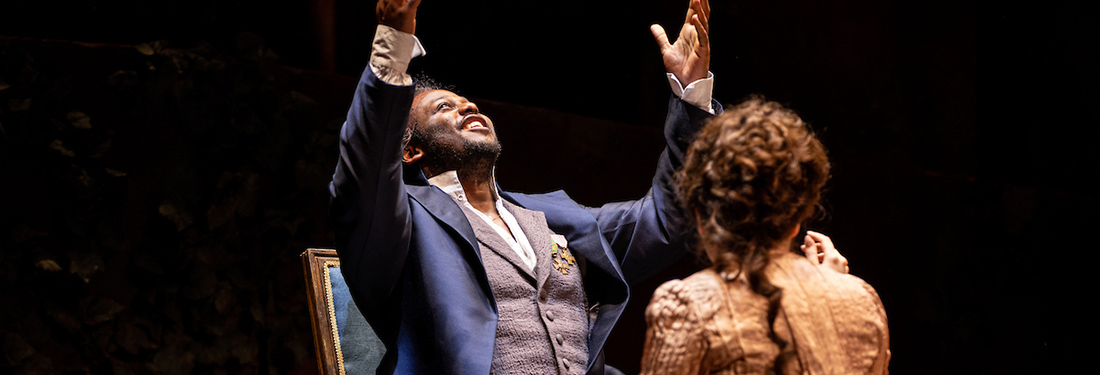
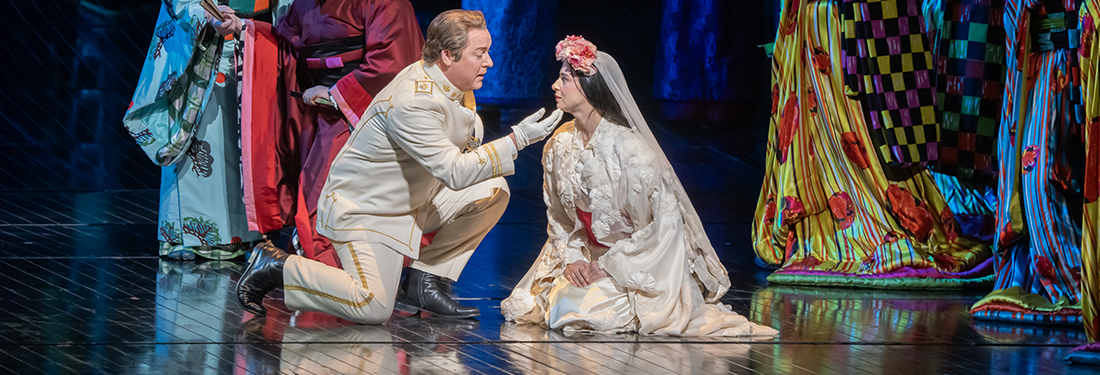
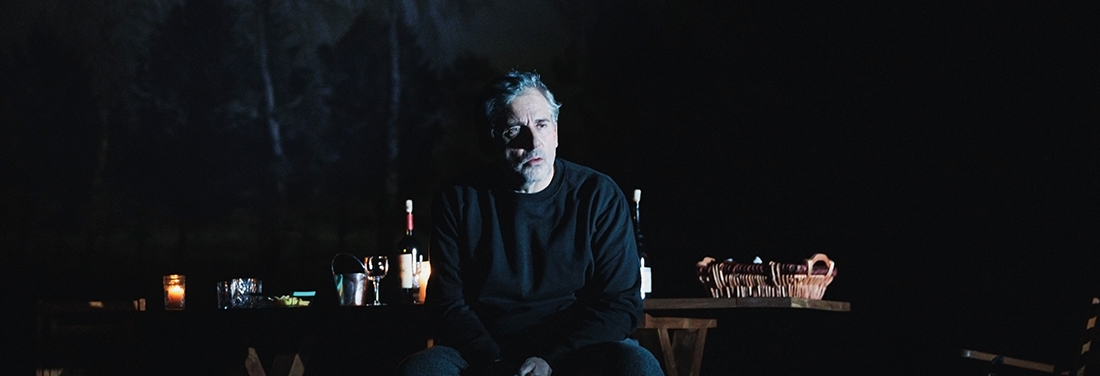
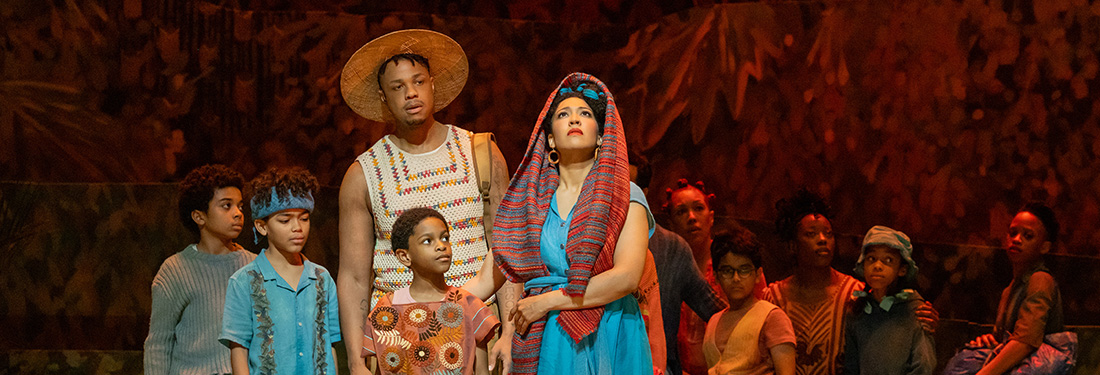
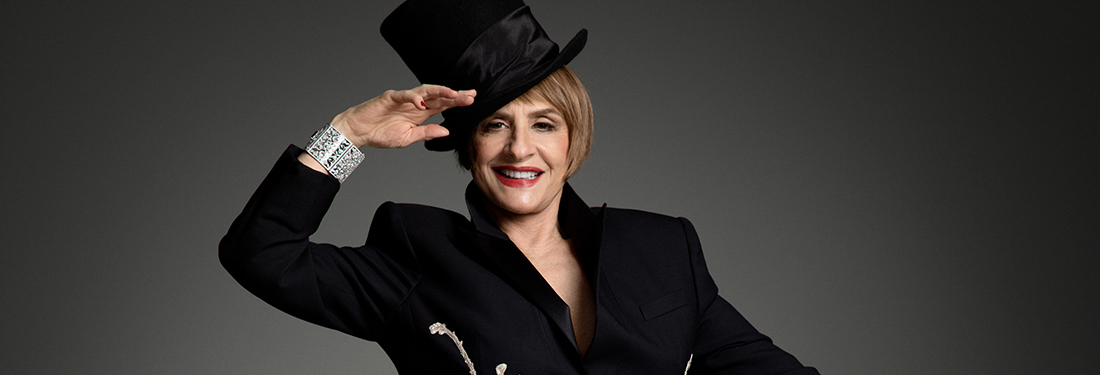
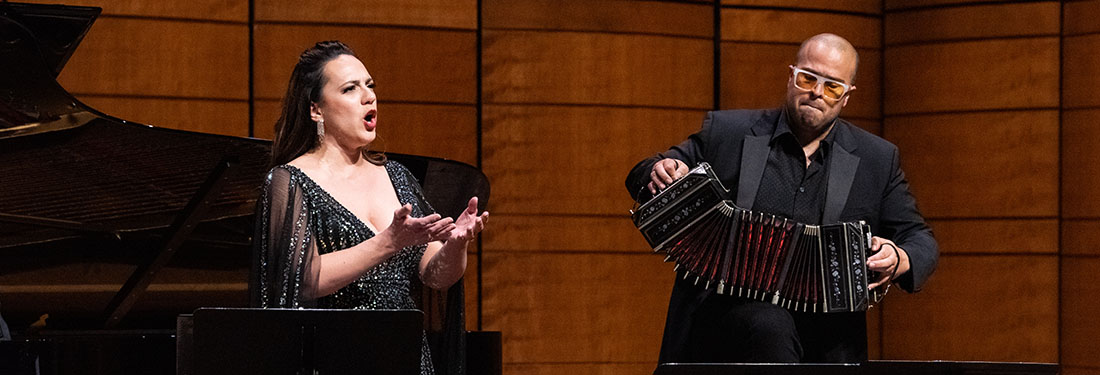
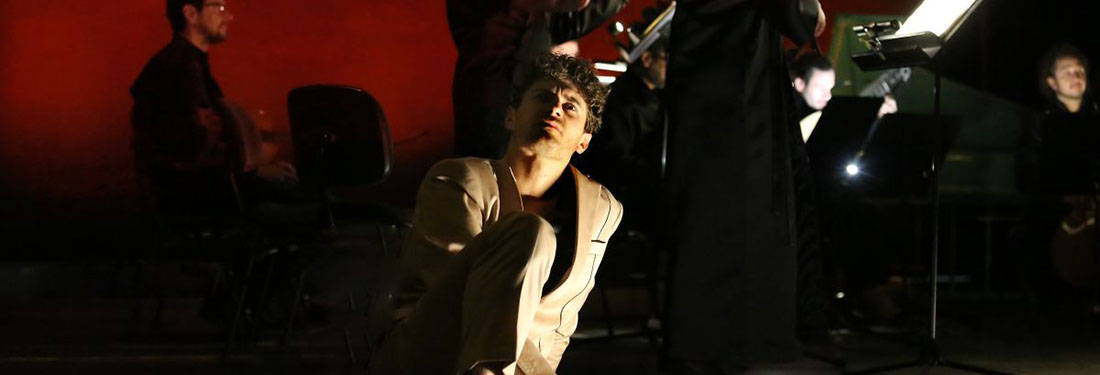
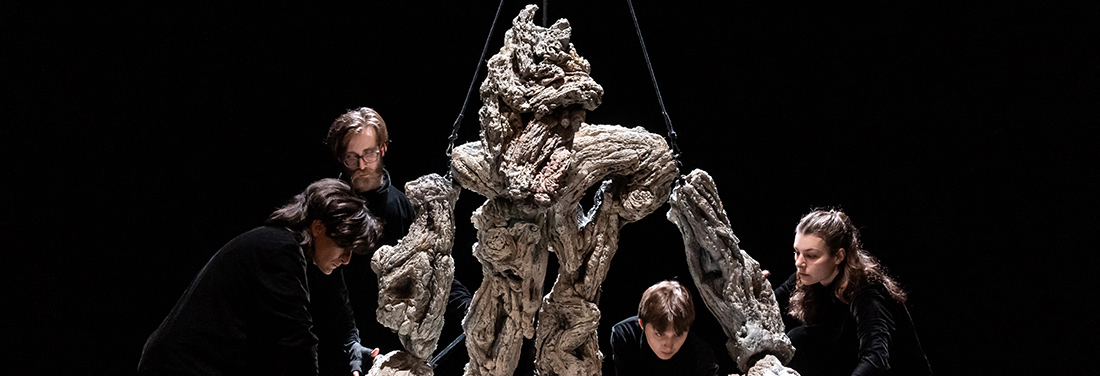
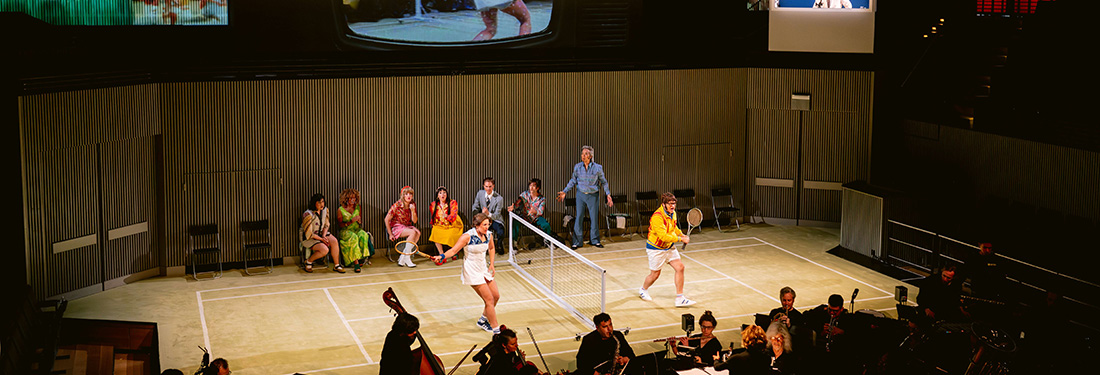
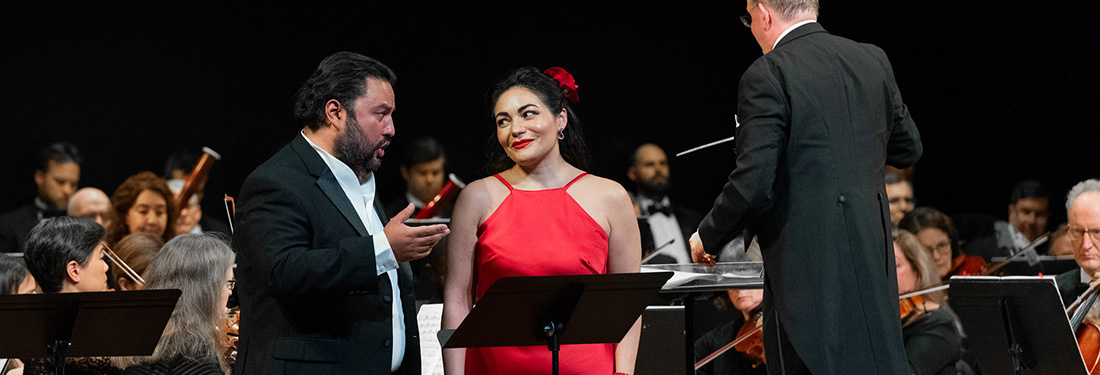
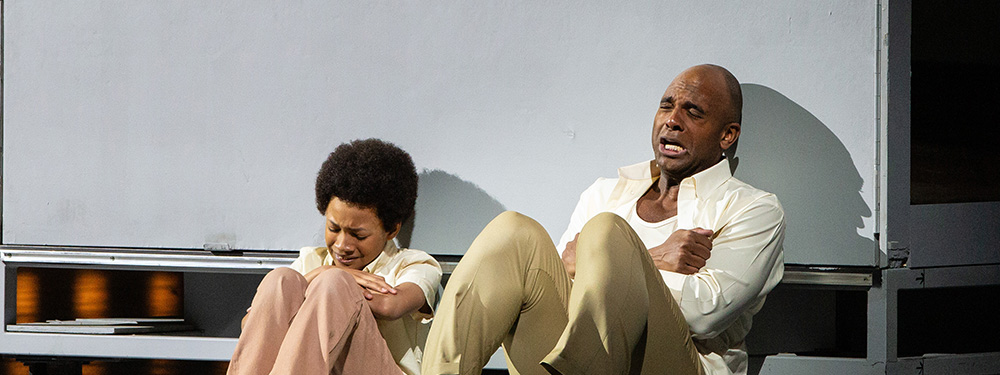
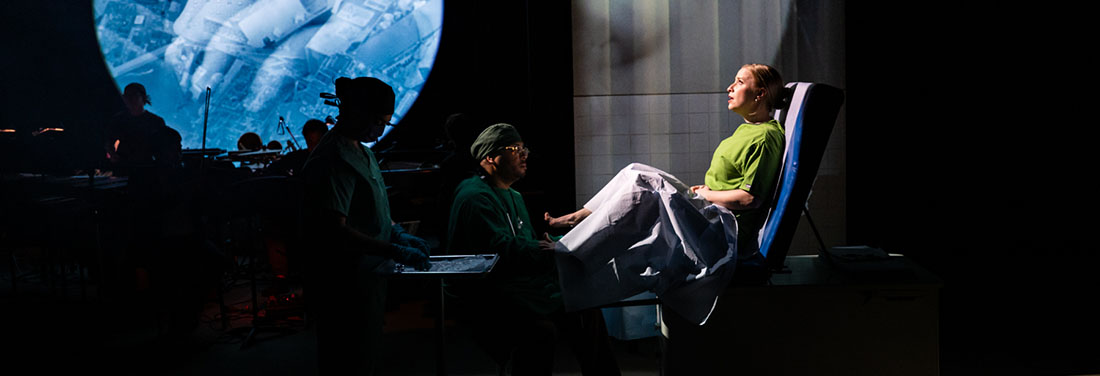
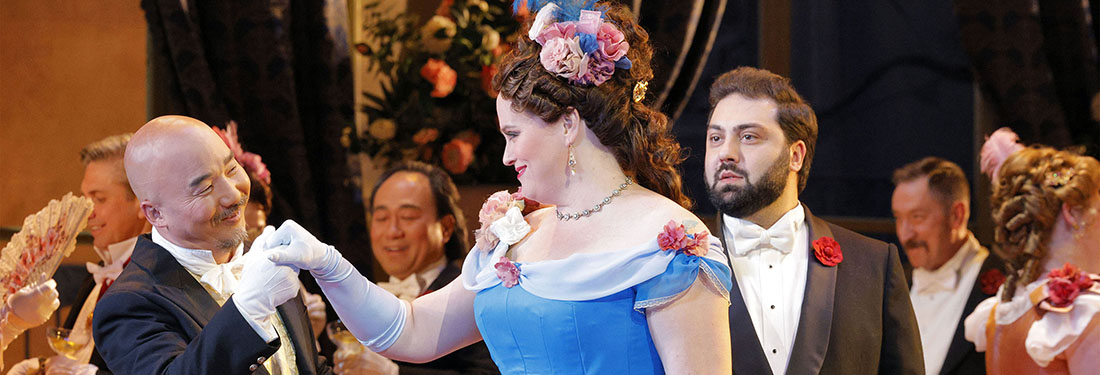
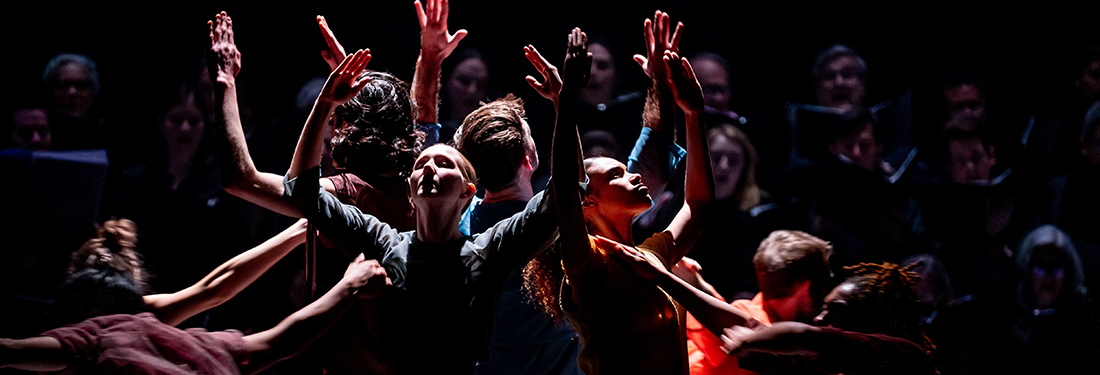
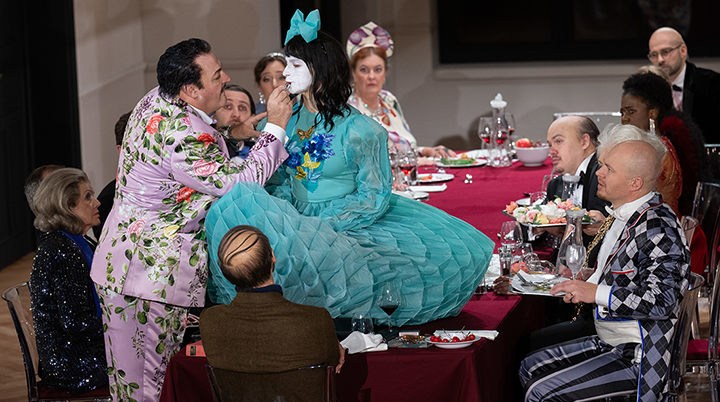
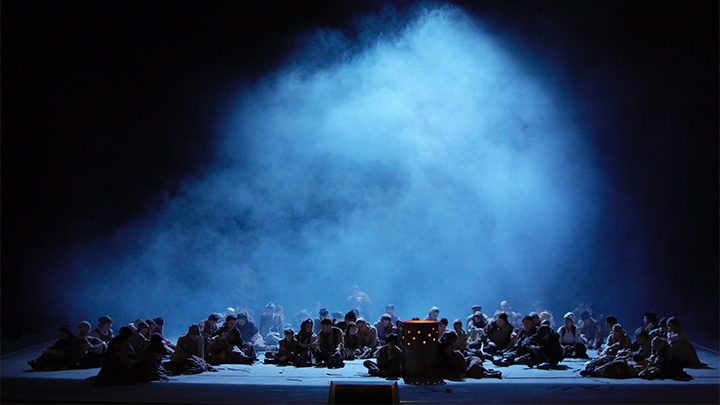
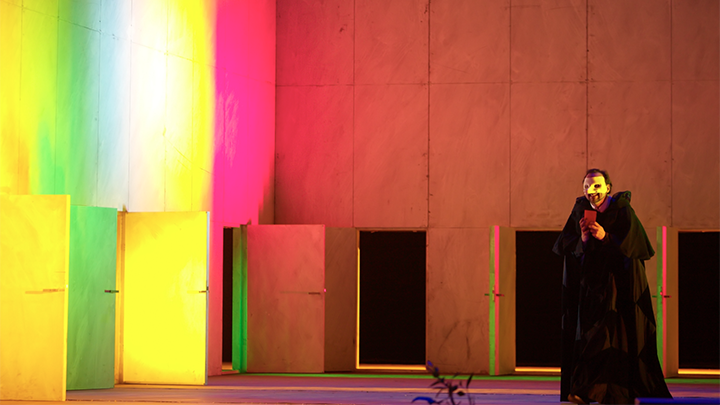
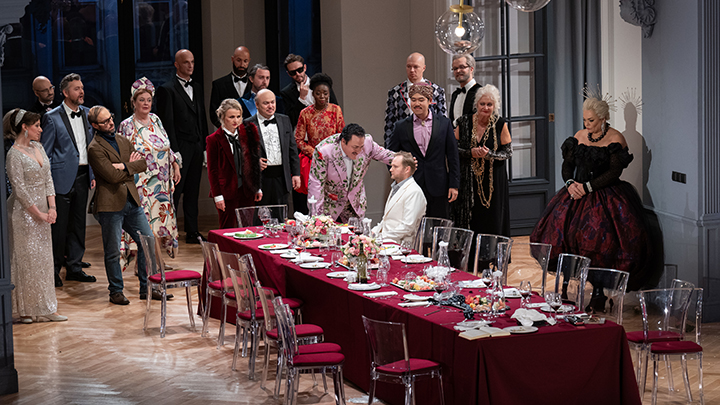
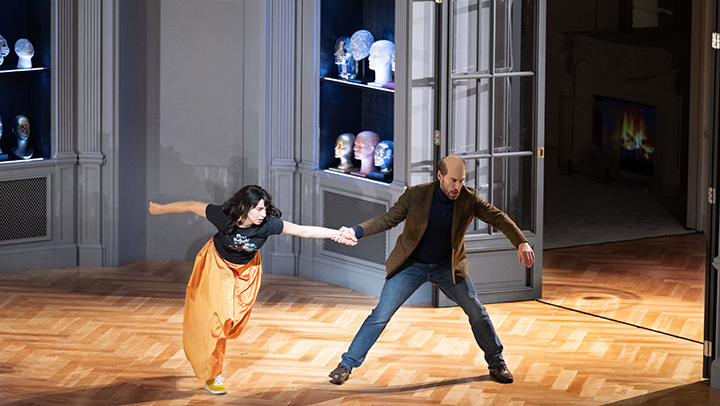
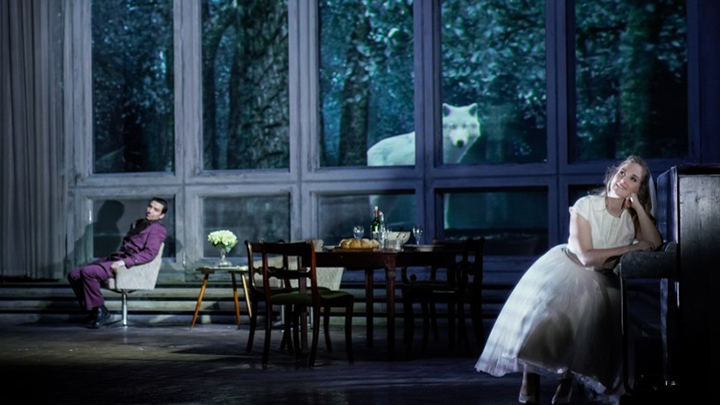
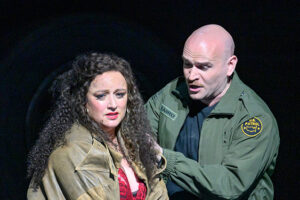
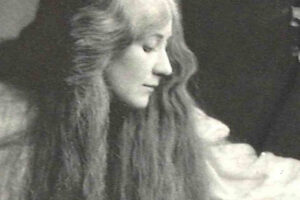
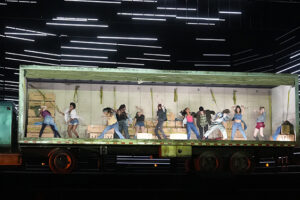

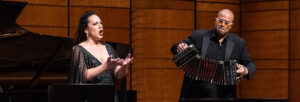



Comments